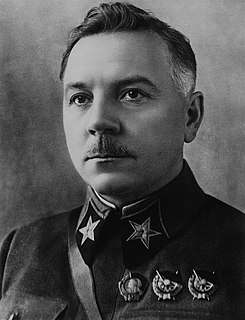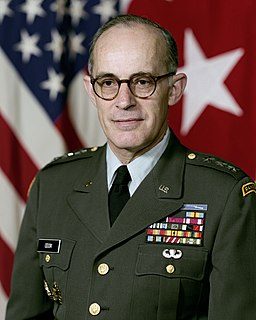A Quote by Thomas Hobbes
The original of all great and lasting societies consisted not in the mutual good will men had toward each other, but in the mutual fear they had of each other.
Related Quotes
If people work together in an open way with porous boundaries - that is, if they listen to each other and really talk to each other - then they are bound to trade ideas that are mutual to each other and be influenced by each other. That mutual influence and open system of working creates collaboration.
There are still to be found visionary or designing men, who stand ready to advocate the paradox of perpetual peace between the states, though dismembered and alienated from each other.... The genius of republics, say they, is pacific; the spirit of commerce has a tendency to soften the manners of men, and to extinguish those inflammable humours which have so often kindled into wars. Commercial republics, like ours, will never be disposed to waste themselves in ruinous contentions with each other. They will be governed by mutual interest, and will cultivate a spirit of mutual amity and concord.
Two persons who have chosen each other out of all the species with a design to be each other's mutual comfort and entertainment have, in that action, bound themselves to be good-humored, affable, discreet, forgiving, patient, and joyful, with respect to each other's frailties and perfections, to the end of their lives.
The coaches hate each other, the players hate each other... There's no calling each other after the game and inviting each other out to dinner. But the feeling's mutual: They don't like us, and we don't like them. There's no need to hide it, they know it, and we know it. It's going to be one of those black and blue games.
I will tell you what, the Rock was my nemesis. We did enough for each other; we put each other over to be famous. If we didn't have that feud with each other, we wouldn't have had the success we both had in pro wrestling. We really did build each other. I'm very thankful we had those opportunities and those matches.
The Soviet Union, true to the Leninist principles of respect for the rights and national independence of all peoples great or small, has always been and is guided in its relations with other countries by the principles of mutual respect for territorial integrity and sovereignty, non-aggression, non-intervention in each other's internal affairs, equality and mutual benefits, peaceful coexistence and economic cooperation.
Ellen [Page] and I had only met a couple of times, but had mutual admiration for each other's work. When I first heard about the film [Into the Forest], I was excited to get a chance to work with one of my peers because it's usually one or the other. You don't get to work with all of the other actors that you're usually competing with.
The Cold War philosophy of Mutual Assured Destruction (MAD), which prevented the former Soviet Union and the United States from using the nuclear weapons they had targeted at each other, would not apply to President Mahmoud Ahmadinejad's Iran. For him (Ahmadinejad), Mutual Assured Destruction is not a deterrent, it is an inducement.









































